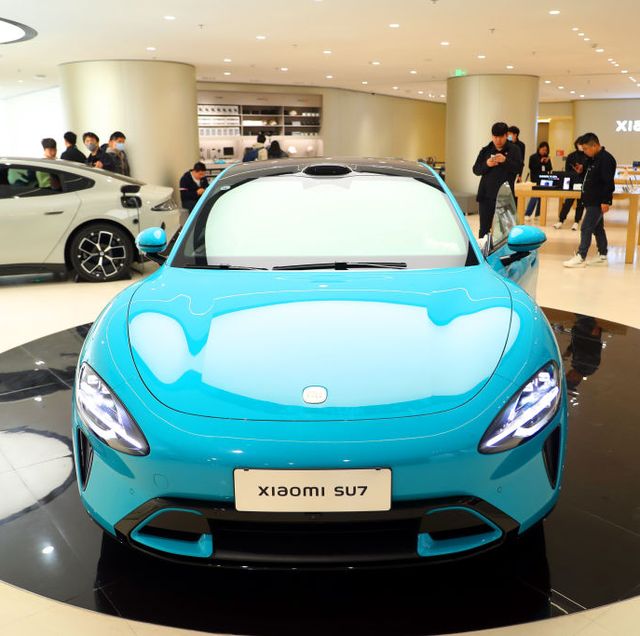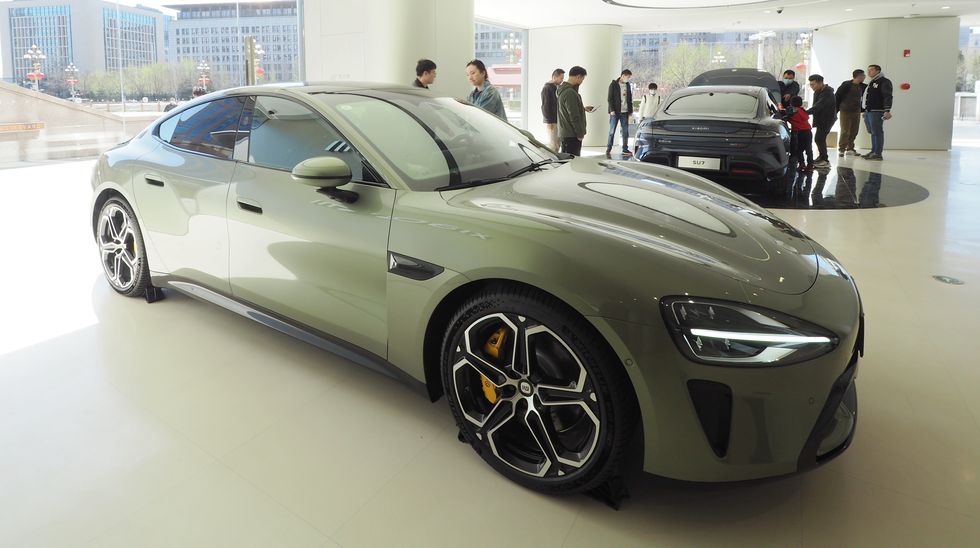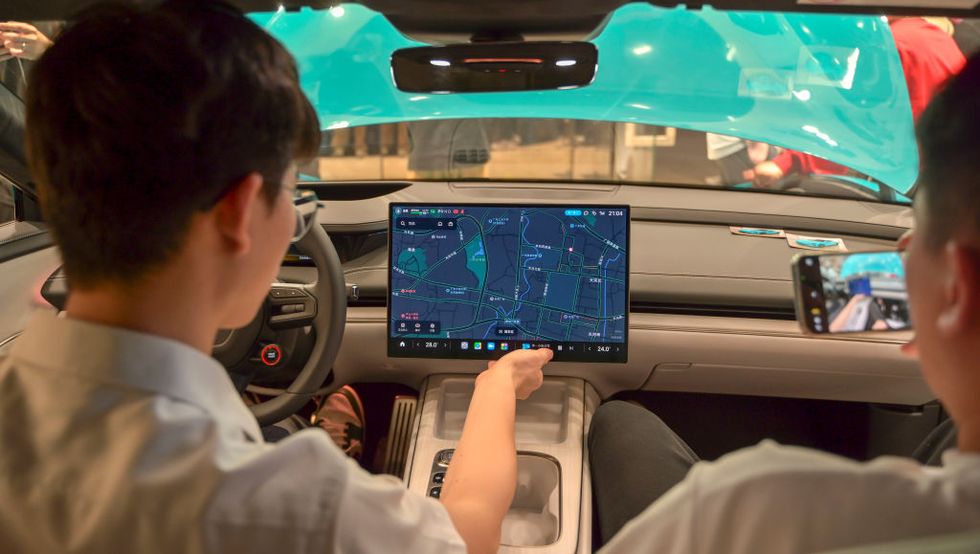就说小米汽车哈,其实在国内媒体的评价中并不好,原因不多说啦。
但是,美国的媒体却在不断加持。前两天看到花二姐日报的报道,这里是Autoweek的,大标题是
这就是为什么这款新电动汽车是笔大生意
呵呵,黑子们还继续黑?不看看主子怎么说?
然后焖蹄就来了,如果小米把电车出口到美国,咋办,接还是不接?是倾销么,里面可都是英伟达零件啥的哦。
Here’s Why This New EV Is A Big Deal
The Xiaomi SU7 sets its sights on Tesla and Porsche while offering impressive pricing, but it now has to deliver.
 VCG//GETTY IMAGES
VCG//GETTY IMAGES
- Chinese electronics giant Xiaomi launches an electric sedan dubbed the SU7, targeting the Tesla Model 3 and other midsize electric sedans, after having kicked off its EV car project in 2021.
- The Xiaomi will offer three battery options, with the least expensive 73.6-kWh model set to start at approximately $29,900 in China, while rated at 343 miles in the CLTC cycle.
- The dual-motor, 663-hp SU7 Max will be powered by a 101-kWh battery, offering range of 503 miles in the CLTC cycle, with a starting price of $41,500.
Xiaomi may not be a household name in the US or Europe, especially when it comes to cars, but this week the company has made a huge splash in the greater EV world by launching the SU7 sedan, aiming to upstage Tesla and others in its home market.
The buzz for the SU7 had been building for months, and even early on it was easy to see why: The electric sedan promised impressive power and range numbers as part of a lineup complete with a performance variant, setting its sights on Tesla.
Xiaomi also has Porsche in its sights, which should be obvious enough by its exterior design, and that's despite the fact the tech giant's automotive division was launched only in 2021.
Just days ago the new EV maker launched the production version of the sedan, with deliveries in the Middle Kingdom set to start this month. The sedan will be offered in three flavors, and perhaps it's the base 295-hp Standard trim that will tempt many buyers in the busy EV market.
In the base single-motor trim, the SU7 will be powered by a 73.6-kWh LFP Blade battery produced by BYD. This version of the sedan is rated at 343 miles in the somewhat optimistic CLTC cycle.
With a starting price of about $29,900, the base version undercuts quite a few other electric sedans on offer in China at the moment.
FUTURE PUBLISHING//GETTY IMAGES
A larger 94.3-kWh battery will be on board the SU7 Pro trim, occupying the middle spot in the lineup, and promising 515 miles of range in the same CLTC cycle. This second single-motor version of the sedan will feature an 800-volt architecture, in contrast to the 400-volt base model, and will have a starting price of about $33,900 in China.
Xiaomi saved the biggest battery for the SU7 Pro, with a 101-kWh unit powering the dual-motor performance model that will serve up 663 hp.
Among other things, this will allow it to sprint from 0 to 62 mph in 2.78 seconds, while offering a range of 503 miles in the CLTC cycle. This range rating isn't quite an apples-to-apples comparison to Lucid's 520-mile Air sedan, so the EPA number would be quite different, we suspect.
Surprisingly, even the top version of the SU7 won't crack the $50,000 barrier, featuring a starting price of about $41,500 in China.
From a wider perspective, Xiaomi appears to have delivered what Apple could not with its own car project after pouring years of work and billions of dollars into it, while also hitting price and range targets that seemed wildly optimistic even just a couple of years ago.
Xiaomi isn't your average EV startup, so it wasn't starting from square one. But its EV car project is seen as nothing short of a "hold my beer" moment in the EV industry in the country, and a reflection of just how quickly the industry is evolving in China with the launch of SU7 sales being the biggest EV event of the year so far.
CHINA NEWS SERVICE//GETTY IMAGES
The SU7 will be built by longtime automaker BAIC Group in Beijing, so Xiaomi didn't have to invest in building out its own infrastructure for the project. And there are enough battery suppliers in the country as well to cater to EV makers old and new.
But even with these impressive specs on paper, Xiaomi faces an uphill battle in a market that already has plenty of EV choices, as well as established and popular brands like BYD.
Xiaomi is also not expected to make money on each car sold—to put it mildly—and now has sizable number of pre-orders that it has to fulfill: 88,898 of them in the first 24 hours.
It will also be playing in a cutthroat segment that has already seen a few price wars, and is bound to see more as competitors race to impress savvy EV shoppers.
Can Xiaomi get a slice of the EV pie in the longer term?
The electronics giant has certainly accomplished a lot in a short span of time, and it has the name recognition in the world's largest EV market to make the jump from tablets and phones into cars.

